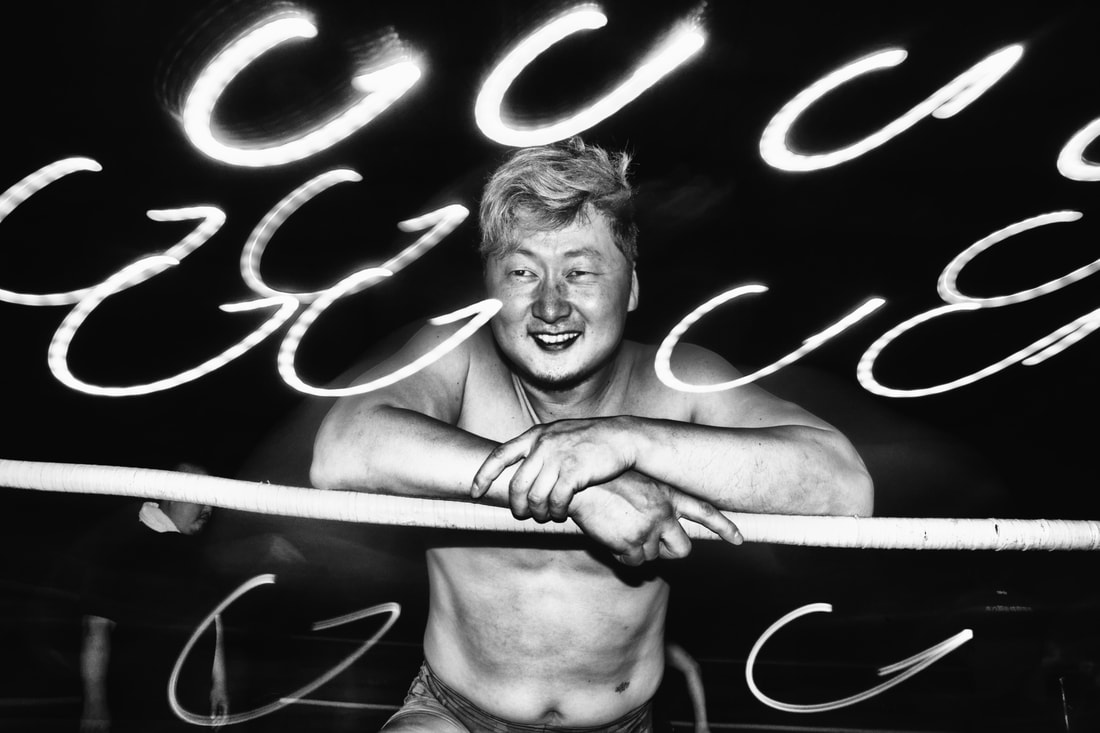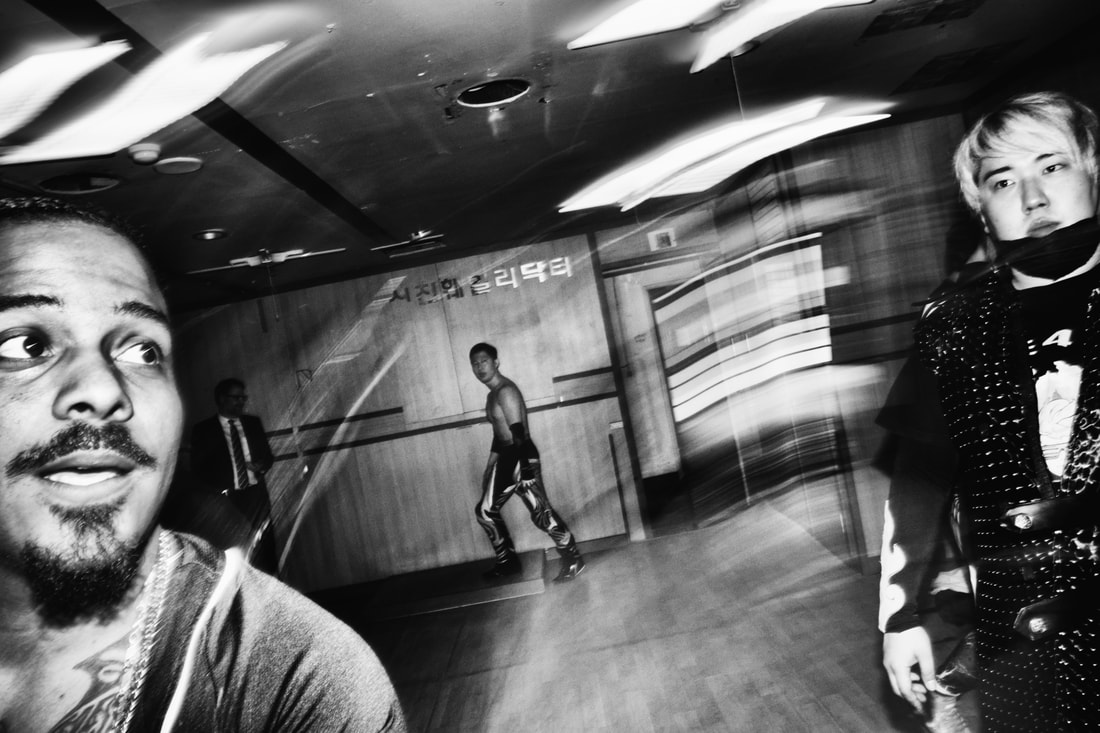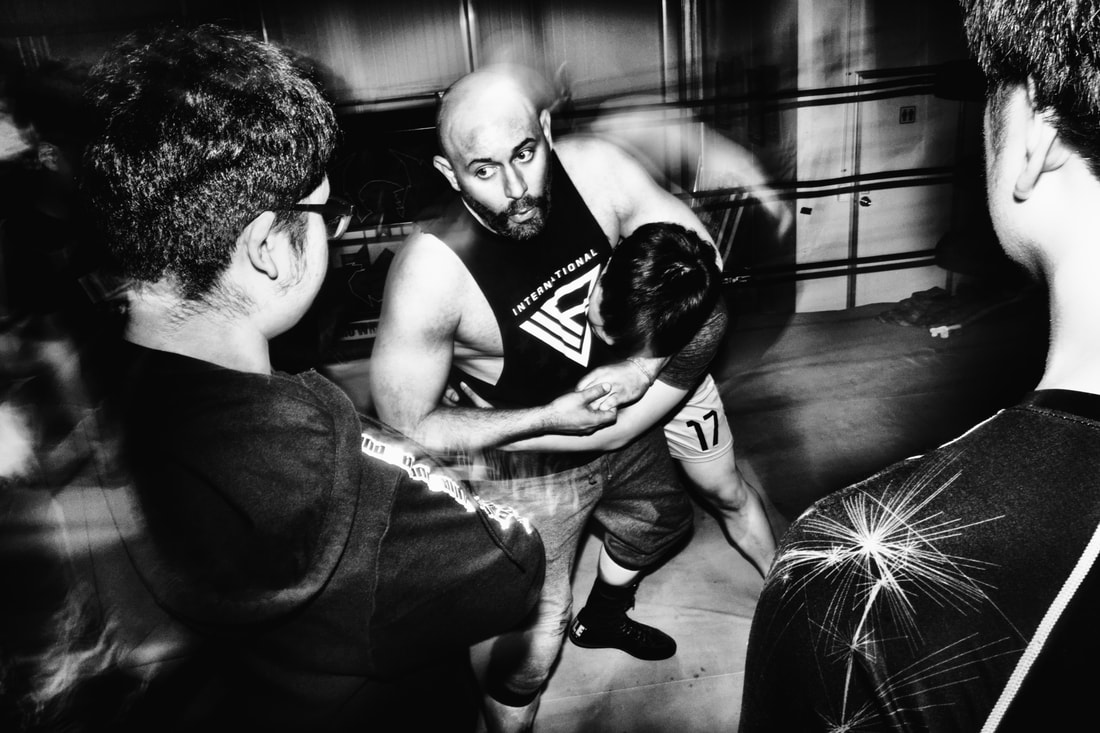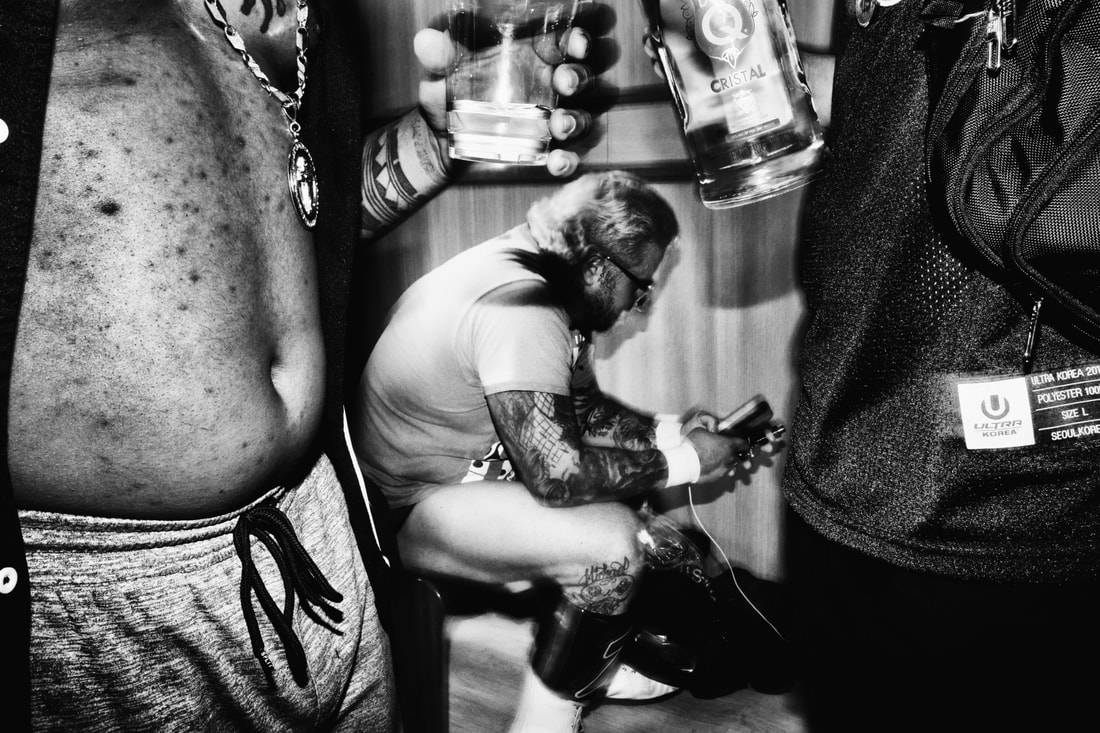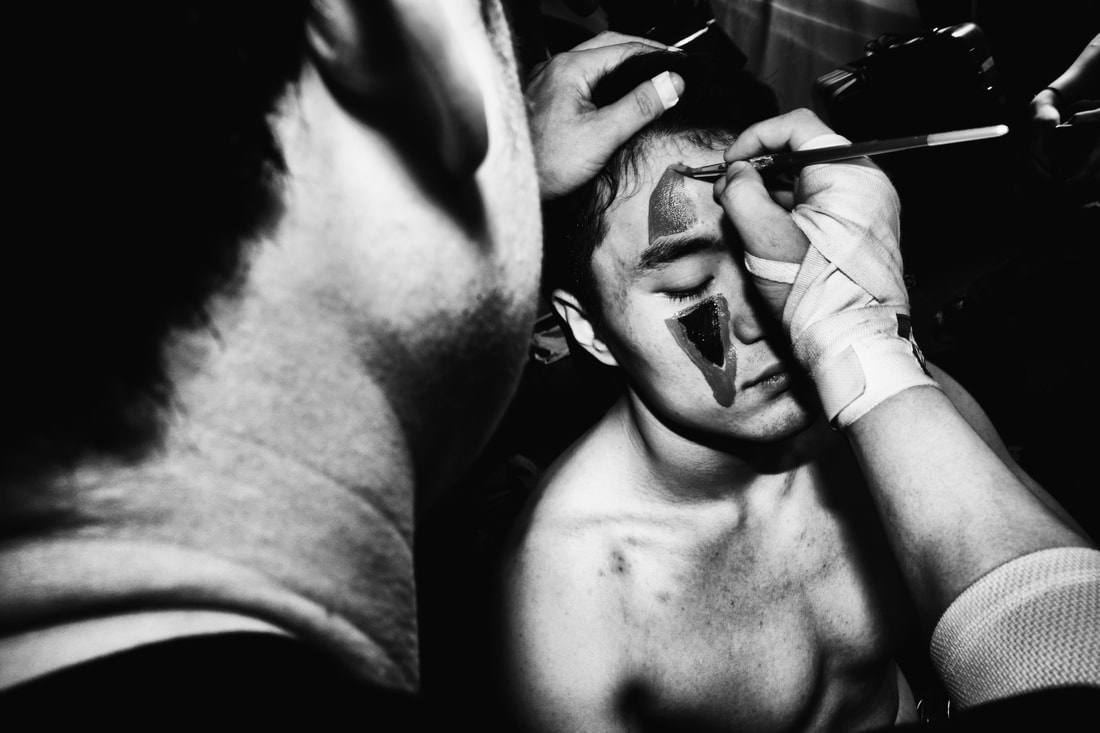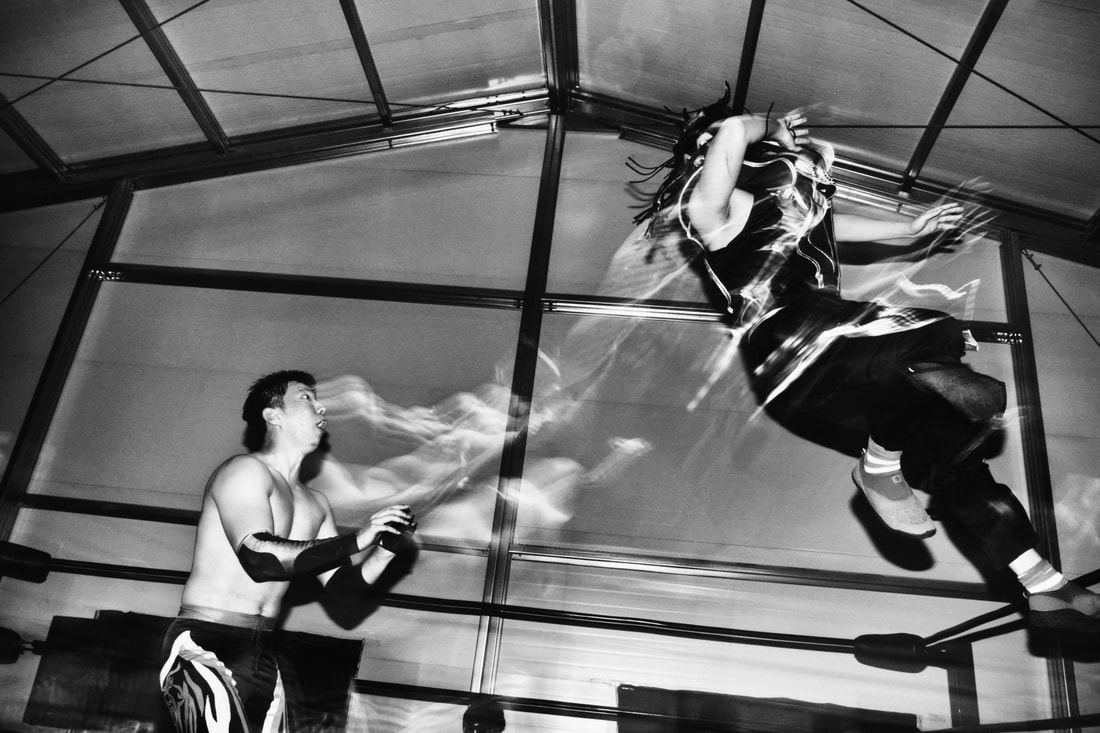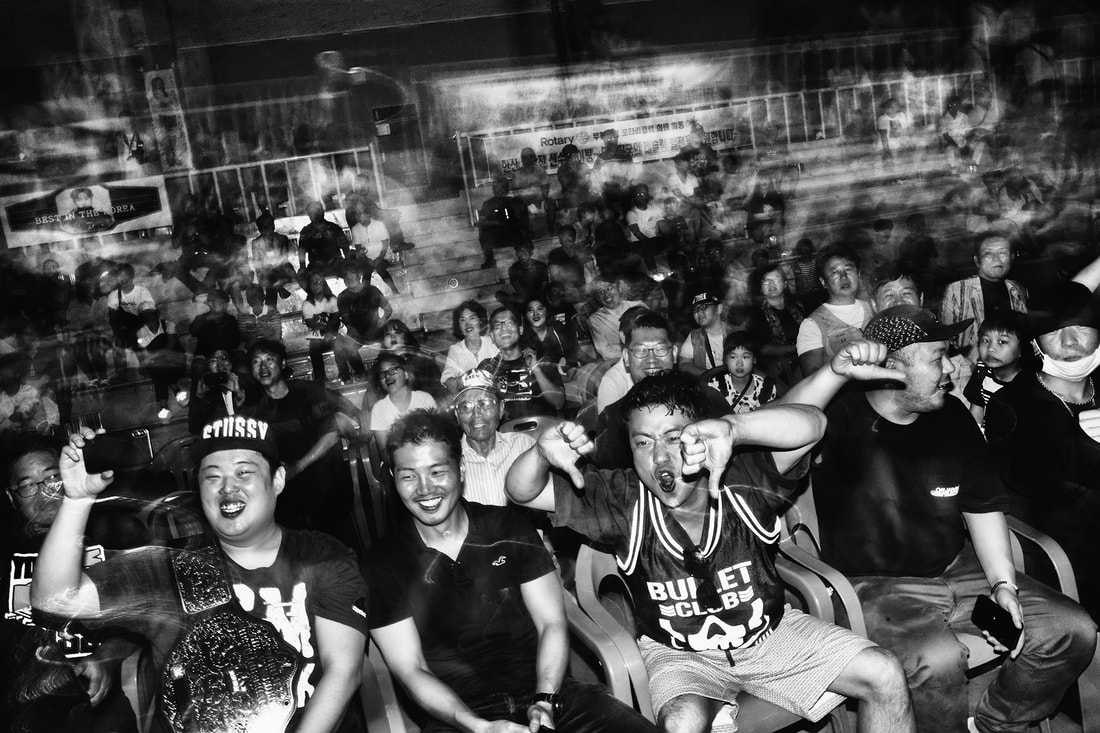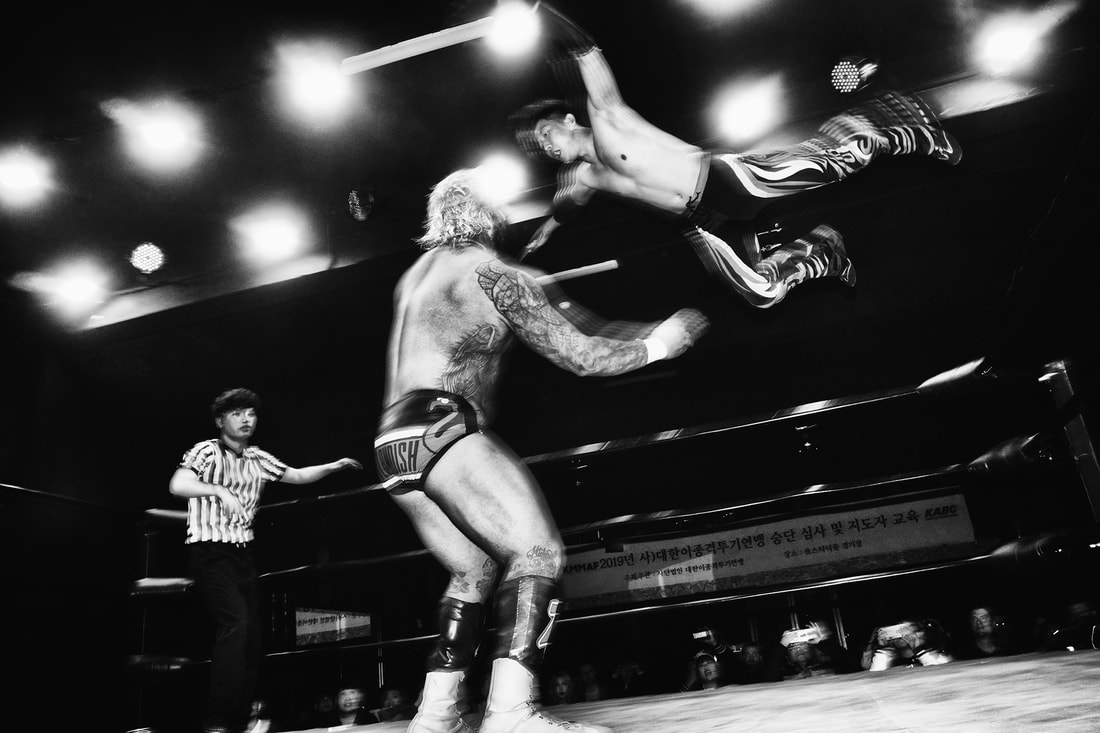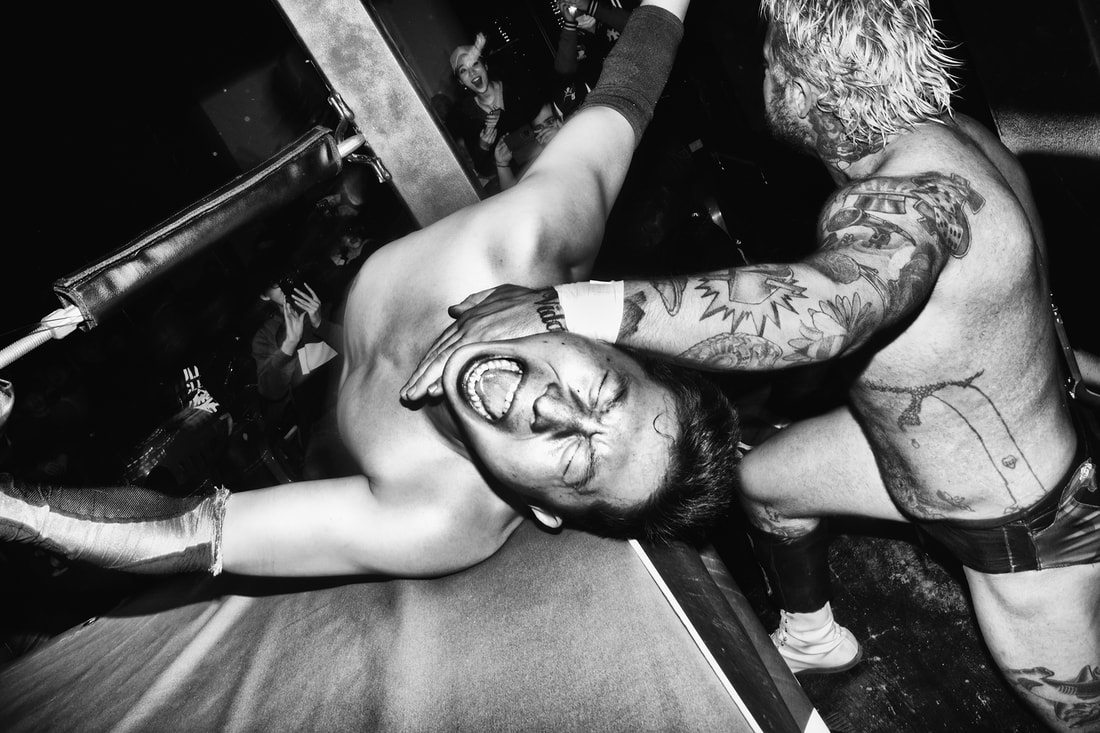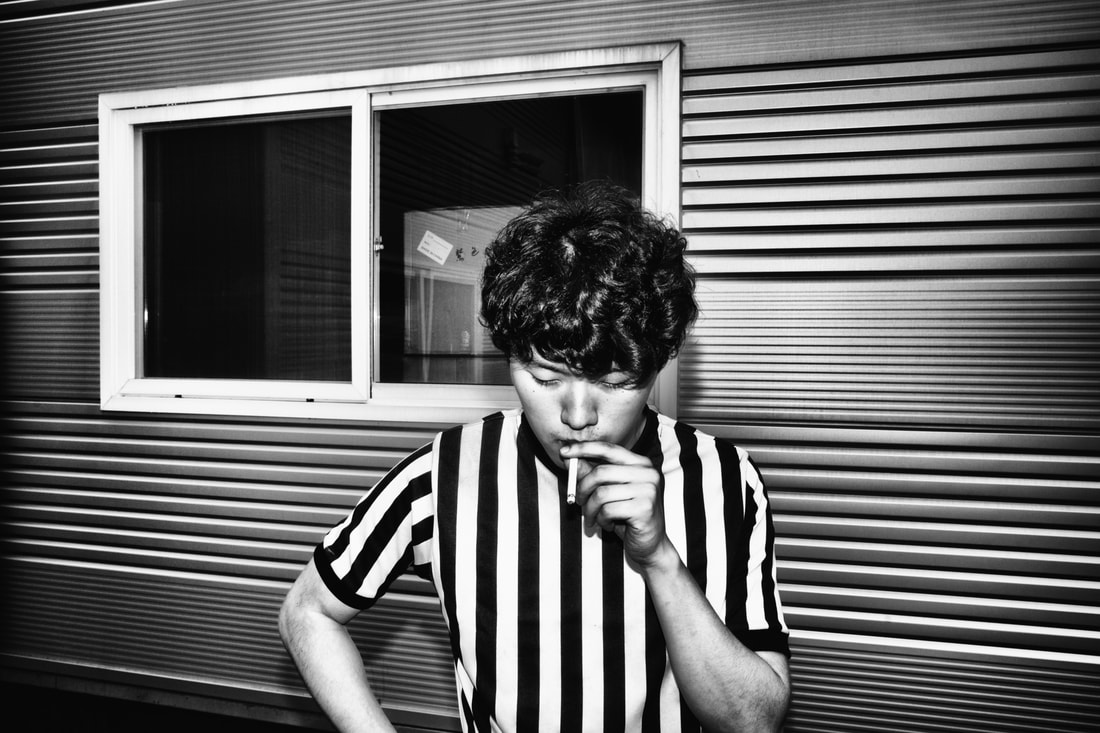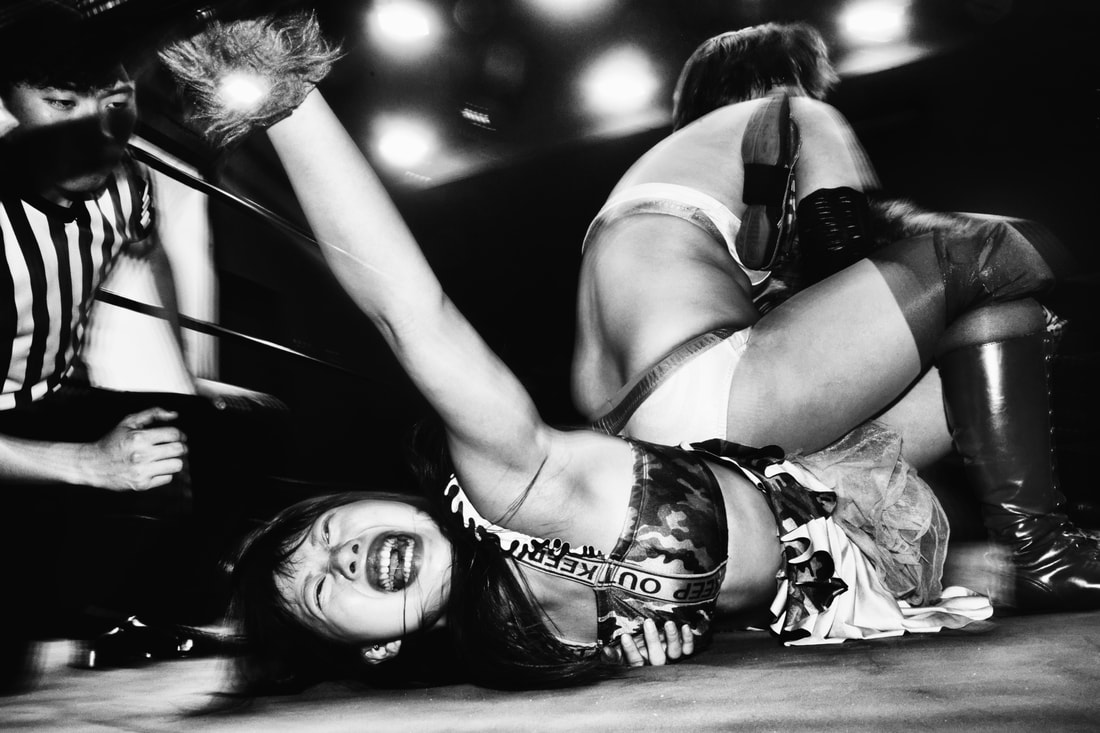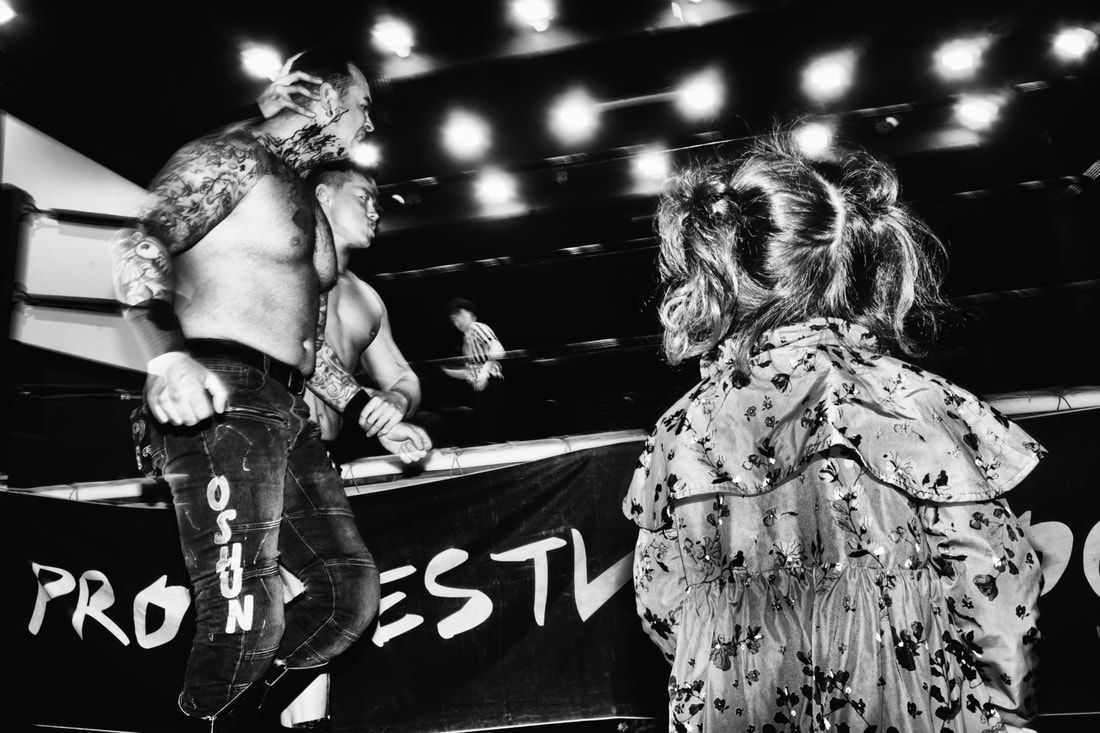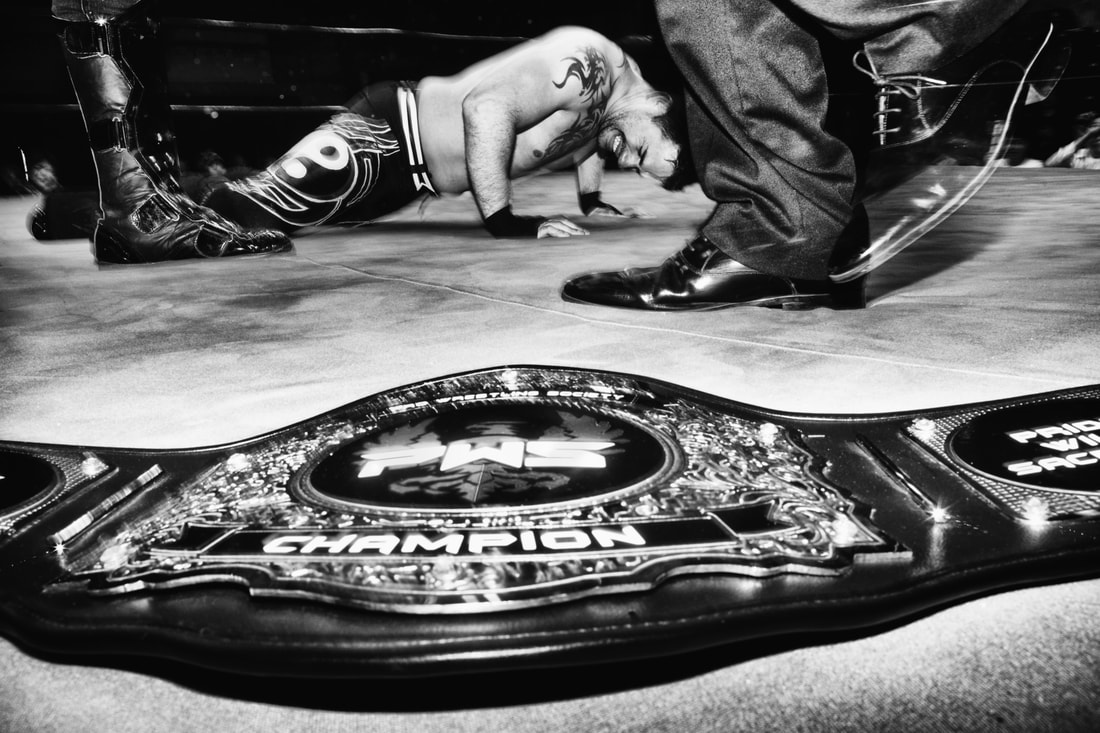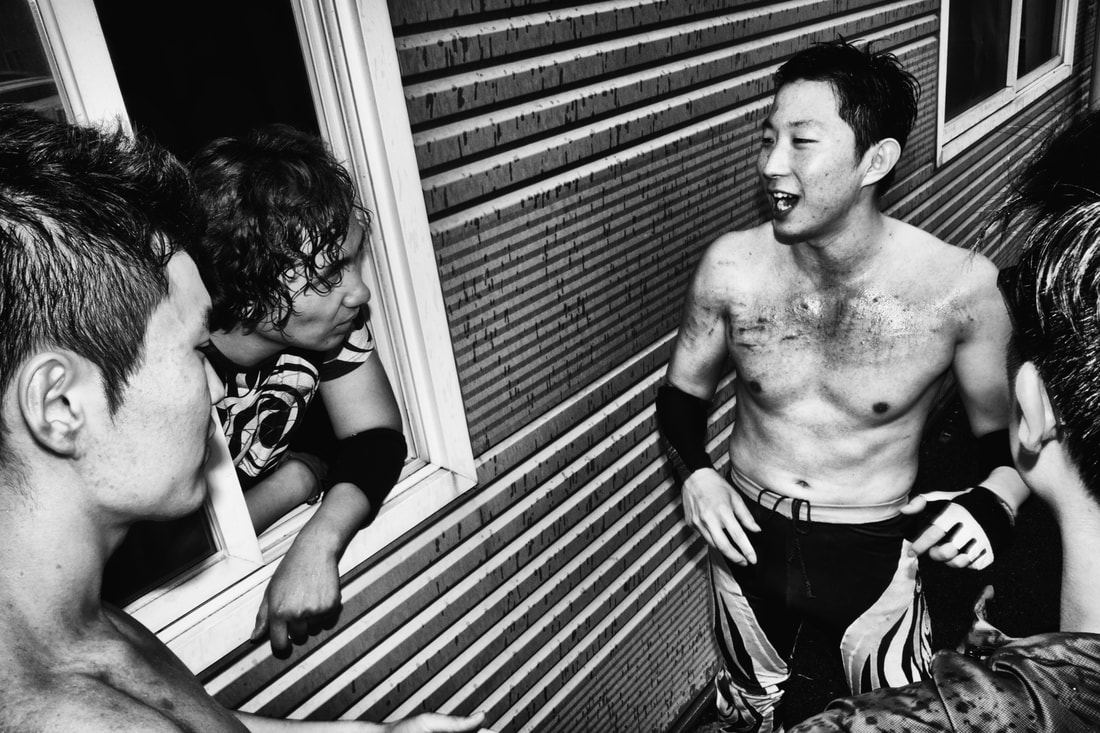A dream To Fight For
In conservative South Korea an unlikely indie pro-wrestling scene is developing.
From its humble beginnings, it is growing dreams and acting as a bridge between different cultures.
From its humble beginnings, it is growing dreams and acting as a bridge between different cultures.
PHOTOS & DRAFT BY ARGUS PAUL ESTABROOK
Pro Wrestling Society started in May 2018, when Hong Dong-hee and his friends realized they shared the same vision: To make pro-wrestling culture bloom in South Korea. Some of his friends were South Koreans and others were ex-pats in the army stationed there, as well as teachers and actors. Most of all, they wanted to create an accessible platform for everyone in Seoul to train and wrestle together.
Cofounding PWS with his friend Terrance McAvoy, an American ex-pat who helps with promotion, they recognized nothing like this existed in the country. In June 2018 they order a ring from the United States and set up shop at warehouse complex outside of the Seoul area in Pyeongtaek, Gyeonggi-do. Before then, PWS was limited to training with a just a single rolling mat with hopes of what could be.
While the current PWS roster of 14 active wrestlers and 8 trainees come from varied backgrounds -- some native Koreans, others from the West -- they all believe that wrestling is a way to bring people together. "We want to see people of all generations and gender enjoy this pure form of entertainment. We want everyone to enjoy pro-wrestling," says Hong Dong-hee. "Our main audience is actually couples and families, not just young guys who are into the violence. Of course, violence is one of the main reasons people come but we try to balance it with energy, theater, and story-telling. For example, we’d like people to enjoy us the same way they’d enjoy a rock concert."
Hong Dong-hee (age 29) wears many hats at PWS. He is the head trainer, lead organizer, and a high carder (semi-main eventer). While founding Pro Wrestling Society, he wanted it to show a different image of pro-wrestling typically found in South Korea, something more cross-cultural and stylish. To achieve this, PWS focuses on mixing Japanese Brawl style and North America Entertainment style (like that found in the WWE). Of these two styles, he is particularly drawn to pro-wrestling found in the USA because of a WWF event that he watched on Korean TV when he was 11 years old. "It changed my life. It got me interested in English and Western culture in general and exposed me to things like heavy metal rock. I never thought I’d be able to be a wrestler, I just knew I wanted to do it. And then when I was 21, I found a small wrestling dojo and meet my mentor, Jo."
Now a trainer for PWS, Jo Kyung-ho is also a member of another wrestling group in South Korea, WWA (World Wrestling Association). Hong Dong-hee choose Jo to train him and later at PWS because he, "is one of the few Korean pro-wrestlers that had lots of Japanese and international experience. Unlike others here, he started learning the sport in other countries and is knowledgable of different skills." Soon after taking his role as a PWS trainer, he also became a visiting main eventer. "Jo Kyung-ho is the wrestler who has influenced me the most in terms of the style, mindset, and many other things about this lifestyle." Their close mentor/student relationship has allowed them to work in each other's wrestling groups with PWS and WWA often sharing rosters when holding events.
Other trainers at PWS are ex-pats Robert Alomar and Timothy Hyatt. Combined, they've almost 30 years of experience wrestling in the United States and bring a Western perspective to the team. On why he joined, Alomar says, "I think PWS, and wrestling as a whole, has the ability to reach people from different walks of life, different ages and upbringings. We have fans from all over the world that despite their cultural differences, they have one thing in common, they love wrestling. And that's a powerful and beautiful thing."
Together with Hong and Jo, they train PWS members twice a week with practice on every Saturday and Sunday from 11 am to 5 pm. They also conduct shows once every month at their home location and quarterly at an MMA center for their larger events in Seoul. The Seoul shows are for the most important main events, featuring overseas talent who travel to South Korea from countries such as China, Japan, and the United States.
Still a young company, Pro Wrestling Society enjoys a growing audience of hardcore fans who come to every show. While the warehouse Hong rents currently limits space to between 50-60 seats, he reports that there are usually always about 40+ people, many of which are repeat fans who bring others to enjoy the sport. "The attendance increases every time. The first time we held a big event in Seoul, we drew about a hundred people. At our last one in August, we doubled that! Some people might think 200 people might be a small crowd, but it is somewhat big given the wrestling situation here in Korea. Our next goal is 300, 500, and then 1,000. Who knows, maybe we can even hold a stadium show then!"
As Pro Wrestling Society's reputation grows in Seoul, Hong remains optimistic regardless of the challenges that lie ahead. For him, it's not just about financial success- it's more personal than that. “Wrestling has changed my life in many ways. It’s not just a sport that I enjoy, it is a cultural bridge for me and has allowed me to meet many others from different countries who share the same dream.”
Cofounding PWS with his friend Terrance McAvoy, an American ex-pat who helps with promotion, they recognized nothing like this existed in the country. In June 2018 they order a ring from the United States and set up shop at warehouse complex outside of the Seoul area in Pyeongtaek, Gyeonggi-do. Before then, PWS was limited to training with a just a single rolling mat with hopes of what could be.
While the current PWS roster of 14 active wrestlers and 8 trainees come from varied backgrounds -- some native Koreans, others from the West -- they all believe that wrestling is a way to bring people together. "We want to see people of all generations and gender enjoy this pure form of entertainment. We want everyone to enjoy pro-wrestling," says Hong Dong-hee. "Our main audience is actually couples and families, not just young guys who are into the violence. Of course, violence is one of the main reasons people come but we try to balance it with energy, theater, and story-telling. For example, we’d like people to enjoy us the same way they’d enjoy a rock concert."
Hong Dong-hee (age 29) wears many hats at PWS. He is the head trainer, lead organizer, and a high carder (semi-main eventer). While founding Pro Wrestling Society, he wanted it to show a different image of pro-wrestling typically found in South Korea, something more cross-cultural and stylish. To achieve this, PWS focuses on mixing Japanese Brawl style and North America Entertainment style (like that found in the WWE). Of these two styles, he is particularly drawn to pro-wrestling found in the USA because of a WWF event that he watched on Korean TV when he was 11 years old. "It changed my life. It got me interested in English and Western culture in general and exposed me to things like heavy metal rock. I never thought I’d be able to be a wrestler, I just knew I wanted to do it. And then when I was 21, I found a small wrestling dojo and meet my mentor, Jo."
Now a trainer for PWS, Jo Kyung-ho is also a member of another wrestling group in South Korea, WWA (World Wrestling Association). Hong Dong-hee choose Jo to train him and later at PWS because he, "is one of the few Korean pro-wrestlers that had lots of Japanese and international experience. Unlike others here, he started learning the sport in other countries and is knowledgable of different skills." Soon after taking his role as a PWS trainer, he also became a visiting main eventer. "Jo Kyung-ho is the wrestler who has influenced me the most in terms of the style, mindset, and many other things about this lifestyle." Their close mentor/student relationship has allowed them to work in each other's wrestling groups with PWS and WWA often sharing rosters when holding events.
Other trainers at PWS are ex-pats Robert Alomar and Timothy Hyatt. Combined, they've almost 30 years of experience wrestling in the United States and bring a Western perspective to the team. On why he joined, Alomar says, "I think PWS, and wrestling as a whole, has the ability to reach people from different walks of life, different ages and upbringings. We have fans from all over the world that despite their cultural differences, they have one thing in common, they love wrestling. And that's a powerful and beautiful thing."
Together with Hong and Jo, they train PWS members twice a week with practice on every Saturday and Sunday from 11 am to 5 pm. They also conduct shows once every month at their home location and quarterly at an MMA center for their larger events in Seoul. The Seoul shows are for the most important main events, featuring overseas talent who travel to South Korea from countries such as China, Japan, and the United States.
Still a young company, Pro Wrestling Society enjoys a growing audience of hardcore fans who come to every show. While the warehouse Hong rents currently limits space to between 50-60 seats, he reports that there are usually always about 40+ people, many of which are repeat fans who bring others to enjoy the sport. "The attendance increases every time. The first time we held a big event in Seoul, we drew about a hundred people. At our last one in August, we doubled that! Some people might think 200 people might be a small crowd, but it is somewhat big given the wrestling situation here in Korea. Our next goal is 300, 500, and then 1,000. Who knows, maybe we can even hold a stadium show then!"
As Pro Wrestling Society's reputation grows in Seoul, Hong remains optimistic regardless of the challenges that lie ahead. For him, it's not just about financial success- it's more personal than that. “Wrestling has changed my life in many ways. It’s not just a sport that I enjoy, it is a cultural bridge for me and has allowed me to meet many others from different countries who share the same dream.”
